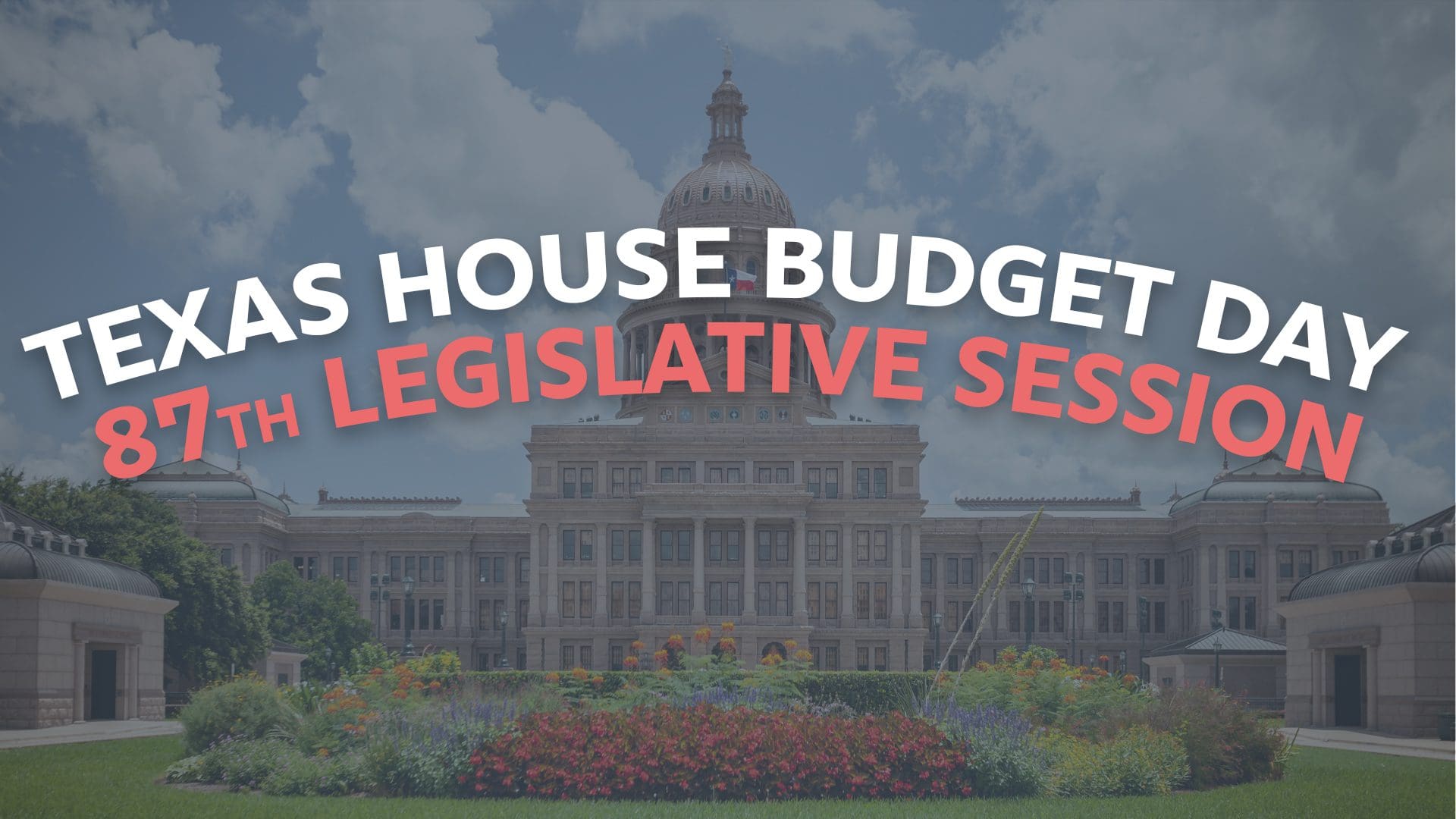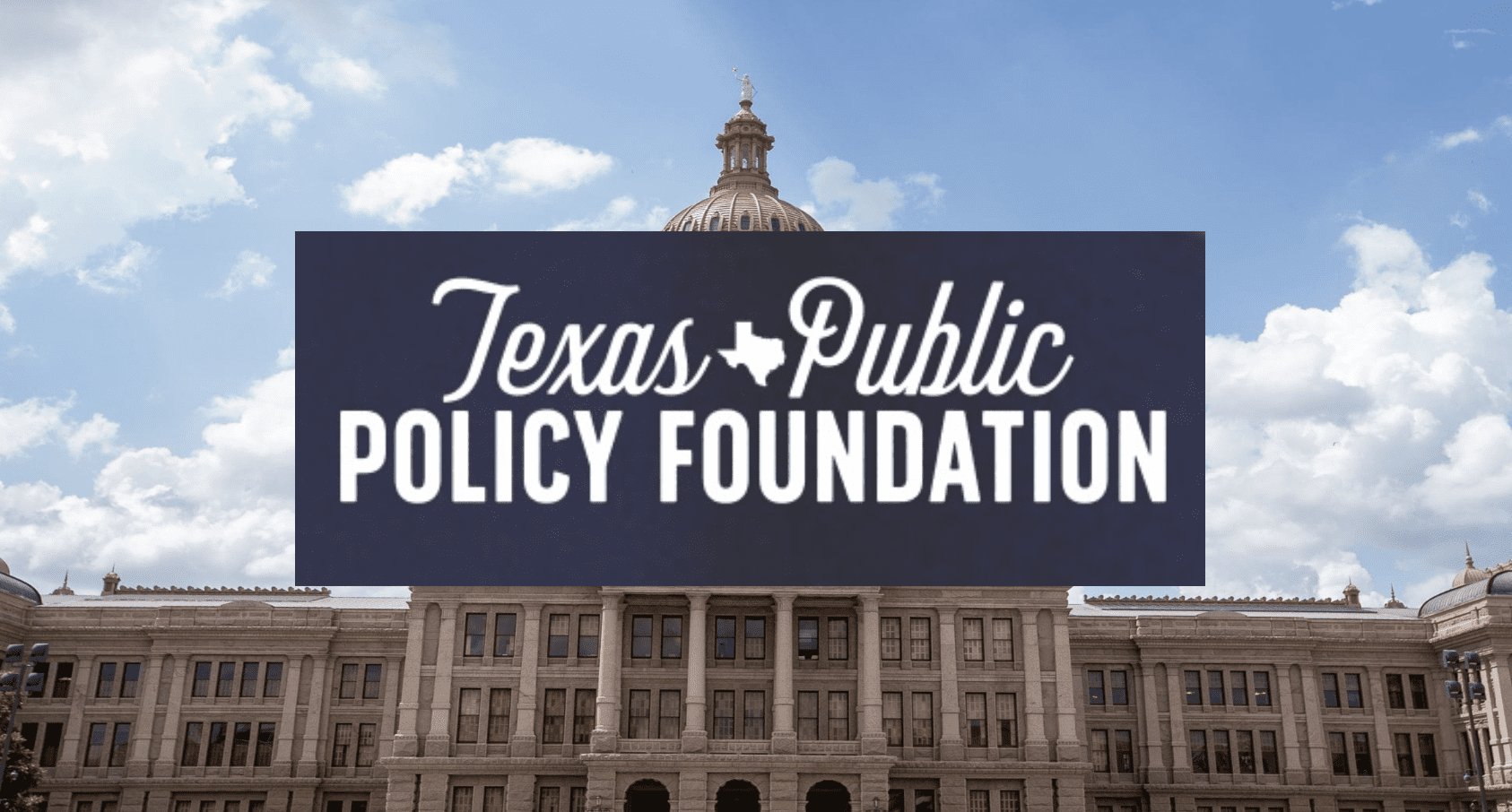On Thursday, the House of Representatives will take up and consider their version of the overall state two-year budget in Senate Bill 1. Generally speaking, much of the debate will be for show, as the majority of the debate occurred in the months leading up to the budget being brought up on the floors of each legislative chamber.
The Senate version of the bill passed out of its chamber unanimously on April 6. It is expected that, barring any significant change, it will pass similarly in the House of Representatives.
Highlights
The House budget, as written, accounts for about $246.7 billion of spending. The Senate approved their version at about $250.7 billion.
It is important to note that neither proposed budget includes the $32 billion the state is set to receive by the federal government under Biden’s American Rescue Plan (ARP). The draft budgets do, in fact, come in below current state spending. If you dig further into the details, however, neither budget successfully funds the projected spending for the next two years, which means that though they are not directly communicating it, the Legislature would be relying on at least approximately $18 billion of the $32 billion coming in from the ARP to be able to do so.
None of the proposed budgets in their current forms include any new reforms for property tax relief beyond what had already been agreed upon in previous legislative sessions.
If you look at the budgets since 2017, including the proposed budget for 2022-2023, total state appropriations would have increased by $63.2 billion and just $31.5 billion since 2019.
Pre-Filed Amendments
The House adopted a calendar rule requiring that all amendments being proposed to the overall budget document be pre-filed by Monday to give individual members time to review ahead of the session.
Some of the more notable amendments include that of one by State Rep. Tony Tinderholt (R–Arlington), which would take away all of the funding to the office of the governor in the event a disaster or emergency declaration is given and he fails to convene the Legislature for a special session after 60 days of issuing such orders.
Another amendment, by State Rep. Kyle Biedermann (R–Fredericksburg), would require all state agencies to submit to the Legislative Budget Board (LBB) a detailed report identifying ways the agency can cut its budgets by 1 percent, 5 percent, and 10 percent.
State Rep. Jeff Cason (R–Bedford) has an amendment that would prohibit the use of money to teach “critical theory” in public schools.
State Rep. Bryan Slaton (R–Royse City) has an amendment that would completely defund the Texas Commission on the Arts and instead give that money to border security to fund the completion of a border wall.
Additional amendments potentially being offered include several that would seek to expand Medicaid. Notably, several bills have also been filed on the subject this legislative session, including one by Democrat State Rep. Julie Johnson (Carrollton) that currently has 71 other lawmakers signed on as authors; seven of the co-authors are Republicans. Though that bill has not received a hearing in the House Human Services Committee, any of the several amendments filed on expanding Medicaid could serve as a vehicle to finally get it passed after several sessions.
The House Democrat Caucus has scheduled a press conference to talk about Medicaid expansion tomorrow morning.
An amendment by Democrat State Rep. Armando Martinez (Weslaco) would take funds amounting to $5 million from the Texas Department of Public Safety and provide for “humanitarian assistance for migrant children.” An amendment by State Rep. Donna Howard (D–Austin) would seek to strike language in the budget prohibiting the use of tax dollars on abortions.
Brief Overview of the Overall Budget Process
The state appropriations bill, also known as the budget bill, provides the framework for how funds are allocated for two fiscal years, or a biennium. The document itself goes through a two-year process where existing state agencies work with the LBB and the Governor’s Budget and Policy Division to develop what are called legislative appropriations requests (LARs).
In the fall, before the upcoming legislative session, the LBB provides a draft budget document composed of the LARs, which direct the initial filed appropriations bills in each chamber. The interim committee meetings of the House Appropriations and Senate Finance Committees focus on making changes to the initial draft while the interim finishes and the legislative session begins. The draft is eventually brought up in front of the entire Legislature.
Next Steps
Upon passage of SB 1, both the House and Senate will appoint conferees for a conference committee; the committee will include five members from each chamber, who will be charged with debating the differences in the House and Senate versions. Normally, these conferees are pre-selected and are the subcommittee chairmen of the House Appropriations Committee or workgroup chairmen of the Senate Finance Committee.
Near the end of the legislative session, the conference committee will submit its report for deliberation by each chamber and, assuming the report is adopted, it will be used as the final version of the overall state budget.
From that point, it goes to Gov. Greg Abbott’s desk, where he has the unique ability to employ a line-item veto power, allowing him to take out specific parts of the budget document without overturning the entire bill.
How to Follow Along
Texas Scorecard will be streaming the House deliberations on the budget, which will begin around noon tomorrow. We will provide commentary along with staff from Texans for Fiscal Responsibility. You can follow along with us on Facebook.





